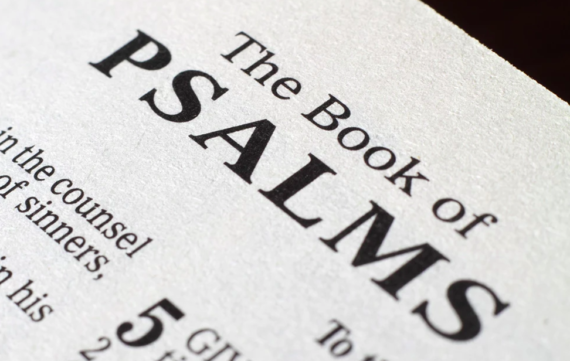Psalm 39
This not an easy passage to understand. We cannot expect that the deepest thoughts will always be clothed in simple language that we will understand on the first reading. The problem dealt with here is much the same as in Psalms 37, 73, and in Job – the problem of triumphant evil.
The Psalm opens with no introduction. The writer has told himself to avoid saying the wrong thing by remaining silent. After several readings of the Psalm, I concluded that he feared saying something like “cursed be the day I was born” (Job 3:3), or “Lord, you have deceived me” (Jer 20:7). But he could not remain silent in the face of the injustice of this world, his words spilled out.






New perspective
This writer needs a new perspective to calm him. He needs a realisation that what happens here is not all that important.
“O Lord, make me know my end and what is the measure of my days; let me know how fleeting I am! 5 Behold, you have made my days a few handbreadths, and my lifetime is as nothing before you. Surely all mankind stands as a mere breath! 6 Surely a man goes about as a shadow! Surely for nothing they are in turmoil; man heaps up wealth and does not know who will gather! (4-6)
“To become so upset and angry because of the wicked was to grant to them an importance and permanence they did not really have (they could indeed acquire wealth, but they did not know who would possess it when they die).” (Peter Craige).
“The most common prejudice, from which the psalmist himself did not escape, is the general tendency to overestimate one’s own importance. Man sees his relation to the reality of God in its right proportions only if that prejudice is radically eliminated…” (Artur Weiser)
He needs a new perspective, a realisation that what happens in relation to God is what really matters.
“And now, O Lord, for what do I wait? My hope is in you. 8 Deliver me from all my transgressions. Do not make me the scorn of the fool! 9 I am mute; I do not open my mouth, for it is you who have done it. 10 Remove your stroke from me; I am spent by the hostility of your hand. 11 hen you discipline a man with rebukes for sin, you consume like a moth what is dear to him; surely all mankind is a mere breath! 12 “Hear my prayer, O Lord, and give ear to my cry; hold not your peace at my tears! For I am a sojourner with you, a guest, like all my fathers. (7-12)
Too many religious people are in it for the gold streets and the mansions. They are not looking forward to an “eternal worship service.” What they want is not God, but heaven (or heaven on earth).
Too many of us feel that we are owed something. Have we not learned to be thankful for being allowed to be guests of God (12)? As his guests, we should not claim things of him as a right. We should be thankful that he allows us to dwell with him.
This Psalm ends with the realisation that earthly life is not all that important, with the realisation that our relationship with God is what matters. But it ends without a clear picture of what lies beyond this earthly life. As with several Old Testament saints, the promise of the resurrection does not seem to have been clear to this writer. He does not seem to be expecting life after death when he says,“Look away from me, that I may smile again, before I depart and am no more!” (13).
New Testament perspective
The New Testament makes use of this Psalm twice: in Hebrews 11: 13-16 and 1 Peter 2:1-12. From the perspective of these New Testament writers, the promise of eternal life has been more clearly revealed. They are therefore able even more clearly than this psalmist, to appeal to the brevity of life on earth, and the greater importance of our life with God beyond the grave – as a motive to change how we live now.
We all claim to share the New Testament perspective, to believe that our life with the Lord beyond the grave will be immeasurably longer and immeasurably more important than our time on earth. We claim that, but is there any real difference in our lives? In what respect do our daily lives differ from the lives of those who do not share our hope? Do we, in our pursuit of possessions, comforts, and earthly security, believe the doctrine we claim to believe? Do we in our reaction to others “grant them an importance and permanence they do not really have?” Have we exaggerated our own importance to the point where we cannot really see the reality of God rightly?
A new perspective on sin
All of us need to repeat the words of verse 8, “Deliver me from all my transgressions.” Yes, there are many sinners in the world. Yes, many of these sinners are successful, wealthy, and triumphant. But the sin that should concern us most is not their sin but our own. Our complaint that God tolerates the sinful should be overwhelmed by our amazement that he tolerates us.

